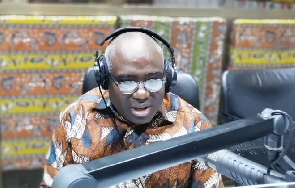Over the counter (OTC) dollar withdrawals remain permitted across Ghana’s banks, but the Bank of Ghana (BoG) is considering new restrictions aimed at curbing speculative demand and stabilizing the cedi.
BoG Board Member and MP Isaac Adongo recently signaled that the central bank may soon limit access to OTC foreign exchange withdrawals reserving them only for customers with verifiable foreign-denominated obligations.
“If you put your dollars in a bank account, that is okay,” Adongo said. “But you can only get dollars if you are going to use them for a dollar-denominated transaction. We will no longer allow access to dollars just to hold or use them locally.”
Adongo’s comments come amid sustained pressure on the Ghanaian cedi, which has seen volatility in recent months partly due to rising demand for foreign currency within the domestic economy.
Despite Adongo’s remarks, the Ghana Association of Bankers (GAB) says no formal directive has been issued by the central bank.
GAB CEO John Awuah clarified the chain of communication, stating:
“We do not take instructions from individual board directors of the Bank of Ghana. We take instructions from the Bank itself under the pen of the Governor.”
Until such an official policy is announced, banks will continue to process OTC dollar withdrawals, although customers may be required to justify the purpose of their requests.
The BoG’s anticipated policy shift is part of broader efforts to defend the cedi by reducing non-essential dollar outflows.
By tightening access to OTC dollars, the central bank hopes to limit currency hoarding and speculation two practices often blamed for undermining the local currency.
Formal guidelines are expected to be issued in the coming weeks, with financial institutions and forex bureaus likely to face new compliance requirements.
For now, the status quo holds: customers can still withdraw dollars over the counter but may face increased scrutiny.
The central bank’s next move will be watched closely by both forex market participants and import-dependent businesses.
By: J.W Quarm





